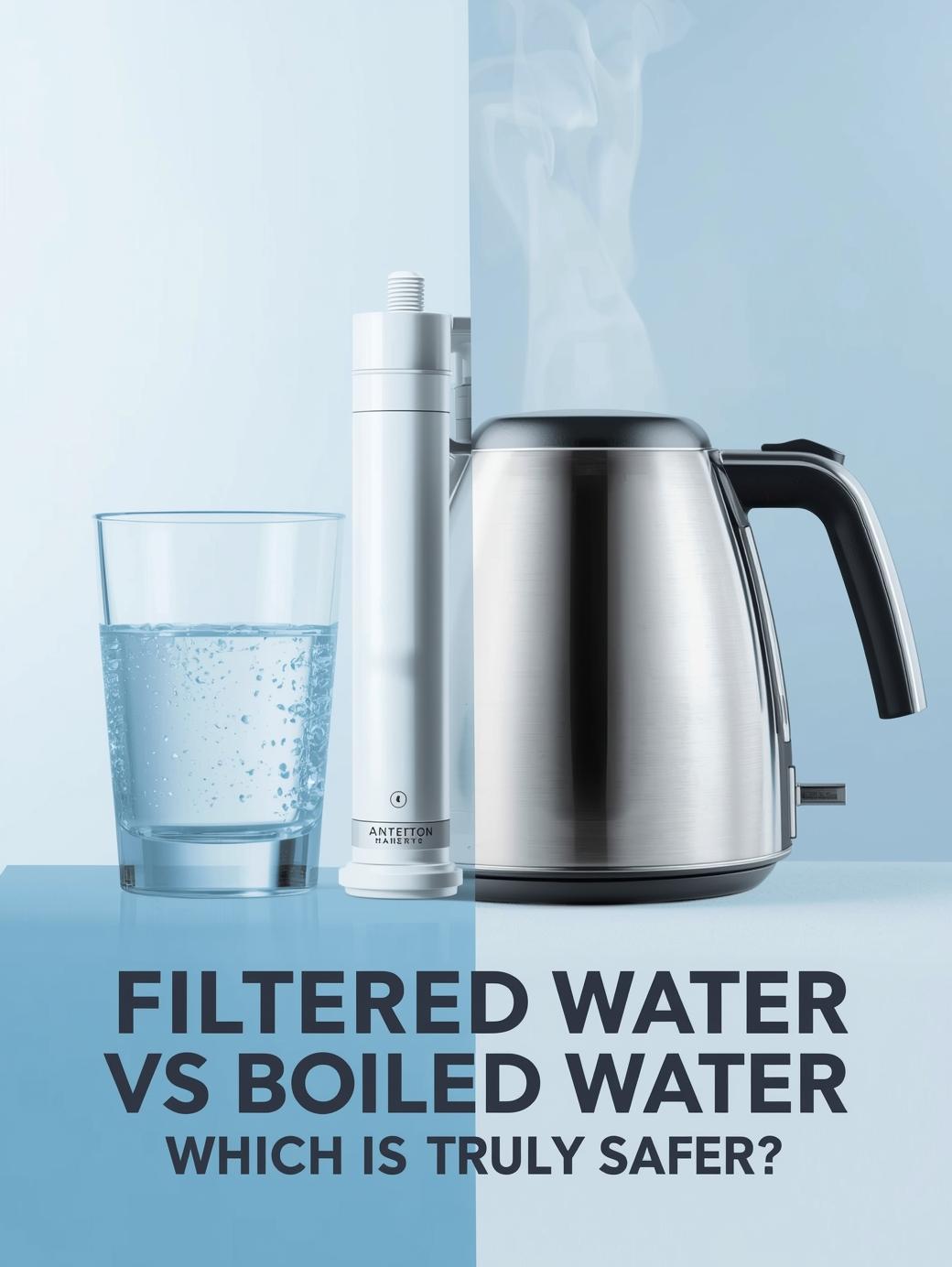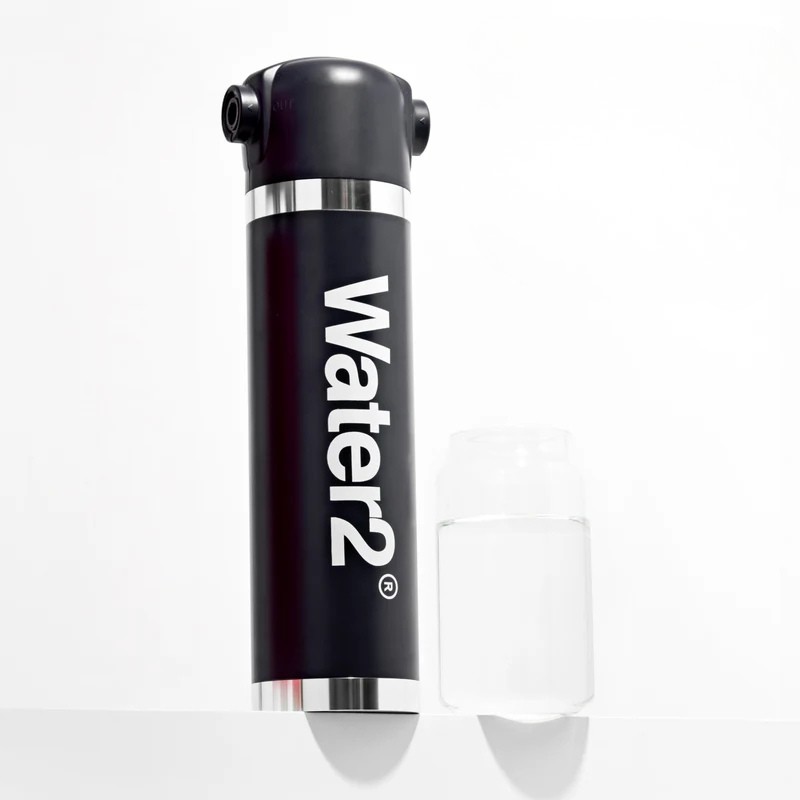Filtered Water vs Boiled Water: Which Is Truly Safer?
Explore the key differences between filtered water and boiled water to find out which is truly safer for your family. Learn how modern filtration systems outperform boiling by removing chemical contaminants, heavy metals, and fluoride for cleaner, healthier water at home.
Rebecca Brady
September 15 , 2025 — 6 minutes read
The filtered water vs boiled water debate is a common one in households striving for the purest drinking water. Access to clean, safe water is essential for our health, yet the methods to achieve this can be confusing. Many people default to boiling water, a time-honored purification technique. Others invest in modern filtration systems. Both methods have their merits, but they address different types of contaminants. Understanding these differences is key to choosing the right solution for your home and family. This guide will break down the science behind each method, helping you make an informed decision about your water quality.
Understanding the Basics: How Boiling Water Works
Boiling is one of the oldest and most effective methods for disinfecting water. The process is simple: heating water to a rolling boil for at least one minute kills most pathogenic microorganisms. This includes bacteria like E. coli and Salmonella, viruses such as Hepatitis A, and protozoa like Giardia. The high temperature denatures the proteins and damages the structural components of these harmful organisms, rendering them inactive and harmless.
Boiling is highly effective against biological threats, which is why health organizations often recommend it during emergencies or in areas with questionable water sanitation. It's a reliable, low-cost way to ensure your water is microbiologically safe to drink. However, boiling has significant limitations. It does not remove chemical contaminants, heavy metals like lead and mercury, pesticides, or dissolved solids. In fact, as water evaporates during boiling, the concentration of these substances can actually increase. It also doesn't improve the taste or odor of water, which can be affected by chlorine and other chemicals.
FAQ: Does boiling water remove chlorine?
Yes, boiling water for about 15-20 minutes can help remove most of the chlorine, as it is a volatile chemical that evaporates with heat.
The Power of Modern Filtration: The Water 2.0 Revolution
Water filtration has evolved significantly, leading to what many call the water 2.0 era [water 2.0]. Unlike boiling, which primarily targets biological contaminants, filtration systems are designed to remove a wide spectrum of impurities. A modern water filter works by passing water through one or more physical barriers or specialized media. The type of contaminant removed depends entirely on the type of filter used.
Basic carbon filters are excellent at removing chlorine, which improves taste and odor. More advanced systems can tackle a much wider range of issues. For instance, a quality under sink water filter can reduce heavy metals, pesticides, and volatile organic compounds (VOCs). These systems provide a comprehensive solution that goes far beyond what boiling can accomplish, delivering water that is not only biologically safe but also chemically pure.
Targeting Specific Contaminants with a Fluoride Filter
One specific concern for many health-conscious individuals is the presence of fluoride in tap water. While added to municipal water supplies to prevent tooth decay, some people prefer to remove it. Boiling water will not remove fluoride; it will only concentrate it. This is where a specialized Fluoride Filter becomes essential. These filters use materials like activated alumina or reverse osmosis membranes to specifically target and reduce fluoride ions from the water.
A dedicated Fluoride Filter offers peace of mind for those who want to control their fluoride intake. Integrating one into your home water system ensures you can effectively remove this specific chemical, a feat impossible with boiling alone.
FAQ: Do all water filters remove fluoride?
Answer: No, only specific types of filters, such as reverse osmosis systems or those with activated alumina media, are effective at removing fluoride. Standard carbon filters do not.
Extending Purification to Your Whole Home: Shower Filters and More
Water quality isn't just about what you drink; it's also about the water you use for bathing. Your skin is your body's largest organ and can absorb chemicals from water. Chlorine and other disinfectants in tap water can lead to dry skin, brittle hair, and can aggravate conditions like eczema. This is where shower filters come into play. A good filter for a shower head can make a noticeable difference in your daily routine.
Installing shower filters is a simple step towards a healthier home environment. These devices attach directly to your shower arm and work to:
-
Reduce chlorine and chloramine exposure
-
Filter out sediment and rust particles
-
Balance the water’s pH levels
-
Soften the water to a degree, improving skin and hair health
This whole-home approach to water quality, which can also include a complete water softener system for hard water issues, addresses contaminants at every point of use. Boiling is impractical for anything beyond small quantities for drinking or cooking, making filtration the only viable option for comprehensive water purification throughout your home.
The Long-Term Solution: Choosing a Starter Kit and Replacement Filter
Investing in a water filtration system is a commitment to long-term health. The initial setup often involves a Starter Kit Replacement Filter, which includes the main housing and the first filter cartridge. The real key to consistent performance, however, lies in timely maintenance. Every water filter has a limited capacity and lifespan, which is why a Starter Kit Replacement Filter is a crucial component of the system.
Over time, the filter media becomes saturated with the contaminants it has removed. If not replaced, the filter can stop working effectively and may even release trapped impurities back into your water. Following the manufacturer’s schedule for replacing your filter ensures your system continues to deliver pure, clean water. This routine maintenance is what makes a system like the water 2.0 filter a reliable and effective long-term solution.
FAQ: How do I know when to change my water filter?
Answer: Most systems have an indicator light, or you can follow the manufacturer's recommendation, which is typically every six months or after a certain number of gallons have been filtered.
Which Method Is Truly Safer?
When we revisit the filtered water vs boiled water question, the answer depends on the context. If your primary and only concern is eliminating bacteria and viruses from an untrusted water source, boiling is a highly effective, albeit temporary, solution. It is the gold standard for emergency disinfection.
However, for everyday use with typical municipal tap water, filtration offers a far more comprehensive and safer solution. Modern filtration systems, from a simple pitcher to a sophisticated under sink water filter, do what boiling cannot: they remove chemical contaminants, heavy metals, pesticides, and improve the overall taste and smell of your water. With options like a Fluoride Filter and shower filters, you can customize your water purification to address specific concerns and protect your entire family from a wider range of impurities. Filtration, with its ability to transform water quality through advanced technology like the water 2.0 systems, is the clear winner for ensuring truly safe and pleasant water in the modern home.







